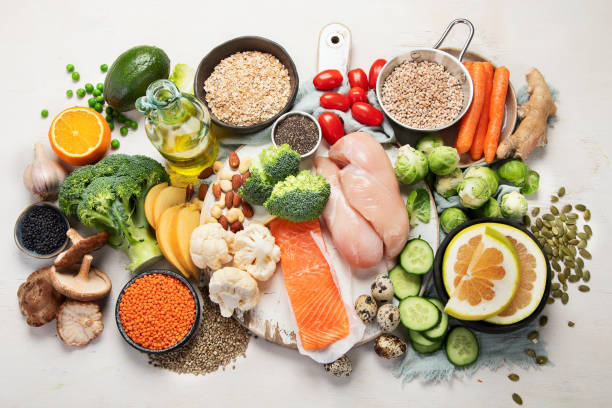Top Foods for Macular Degeneration Prevention: Boost Your Eye Health with These Nutrient-Rich Choices
Macular degeneration is a progressive eye condition that affects millions of people worldwide, particularly those over 50. While there's no cure, research suggests that certain foods and nutrients may help prevent or slow its progression. This article explores the top foods and dietary habits that can support macular health and potentially reduce your risk of age-related vision problems.

What is macular degeneration and how does diet affect it?
Macular degeneration is a condition that damages the macula, the central part of the retina responsible for sharp, detailed vision. As it progresses, it can lead to significant vision loss. While age is the primary risk factor, diet plays a crucial role in eye health. Certain nutrients have been shown to support macular function and protect against oxidative stress, which is believed to contribute to the development of this condition.
Which nutrients are essential for macular health?
Several key nutrients have been linked to better macular health:
-
Lutein and Zeaxanthin: These carotenoids act as natural sunglasses, filtering harmful blue light and protecting the macula from oxidative damage.
-
Omega-3 Fatty Acids: These essential fats support retinal health and may reduce inflammation.
-
Vitamins C and E: Powerful antioxidants that protect eye tissues from free radical damage.
-
Zinc: An important mineral for overall eye health and the transport of vitamin A to the retina.
-
Beta-carotene: A precursor to vitamin A, which is crucial for vision.
What are the best food sources for these eye-healthy nutrients?
To boost your intake of macular-supporting nutrients, include these foods in your diet:
-
Dark, leafy greens (spinach, kale, collard greens): Rich in lutein and zeaxanthin.
-
Orange and yellow fruits and vegetables (carrots, sweet potatoes, squash): High in beta-carotene.
-
Fatty fish (salmon, sardines, mackerel): Excellent source of omega-3 fatty acids.
-
Nuts and seeds (almonds, sunflower seeds): Provide vitamin E and zinc.
-
Citrus fruits (oranges, grapefruits): High in vitamin C.
-
Eggs: Contain lutein, zeaxanthin, and zinc.
How can you incorporate these foods into your daily diet?
Integrating these nutrient-rich foods into your meals doesn’t have to be complicated. Try these simple strategies:
-
Start your day with a spinach and egg omelet.
-
Snack on a handful of nuts or seeds.
-
Include a side salad with dark, leafy greens at lunch or dinner.
-
Aim for two servings of fatty fish per week.
-
Add orange or yellow vegetables to soups and stews.
-
Enjoy citrus fruits as a refreshing dessert or snack.
Are there any specific dietary recommendations for those at risk of macular degeneration?
For those with a higher risk of macular degeneration, such as individuals with a family history or those over 50, experts often recommend the AREDS (Age-Related Eye Disease Study) formulation. This combination of vitamins and minerals has been shown to reduce the risk of advanced age-related macular degeneration by about 25% in high-risk individuals. However, it’s crucial to consult with an eye care professional before starting any supplement regimen, as these formulations may not be suitable for everyone.
Can dietary changes alone prevent macular degeneration?
While a nutrient-rich diet is beneficial for eye health, it’s important to understand that dietary changes alone cannot guarantee prevention of macular degeneration. Other factors such as genetics, smoking, and sun exposure also play significant roles. However, adopting a diet rich in eye-healthy nutrients, combined with other lifestyle modifications like quitting smoking and protecting your eyes from UV rays, can significantly reduce your risk and support overall eye health.
In conclusion, incorporating a variety of nutrient-rich foods into your diet is a proactive step towards maintaining good eye health and potentially reducing your risk of macular degeneration. By focusing on colorful fruits and vegetables, fatty fish, nuts, and seeds, you can provide your eyes with the essential nutrients they need to function optimally. Remember, a balanced diet is just one part of a comprehensive approach to eye health that should also include regular eye exams and a healthy lifestyle.
This article is for informational purposes only and should not be considered medical advice. Please consult a qualified healthcare professional for personalized guidance and treatment.




